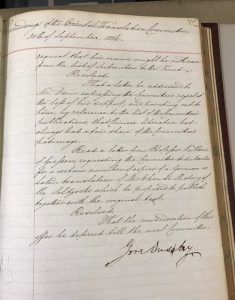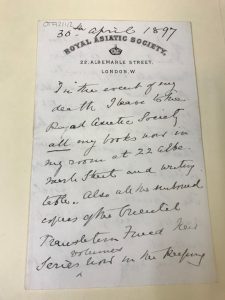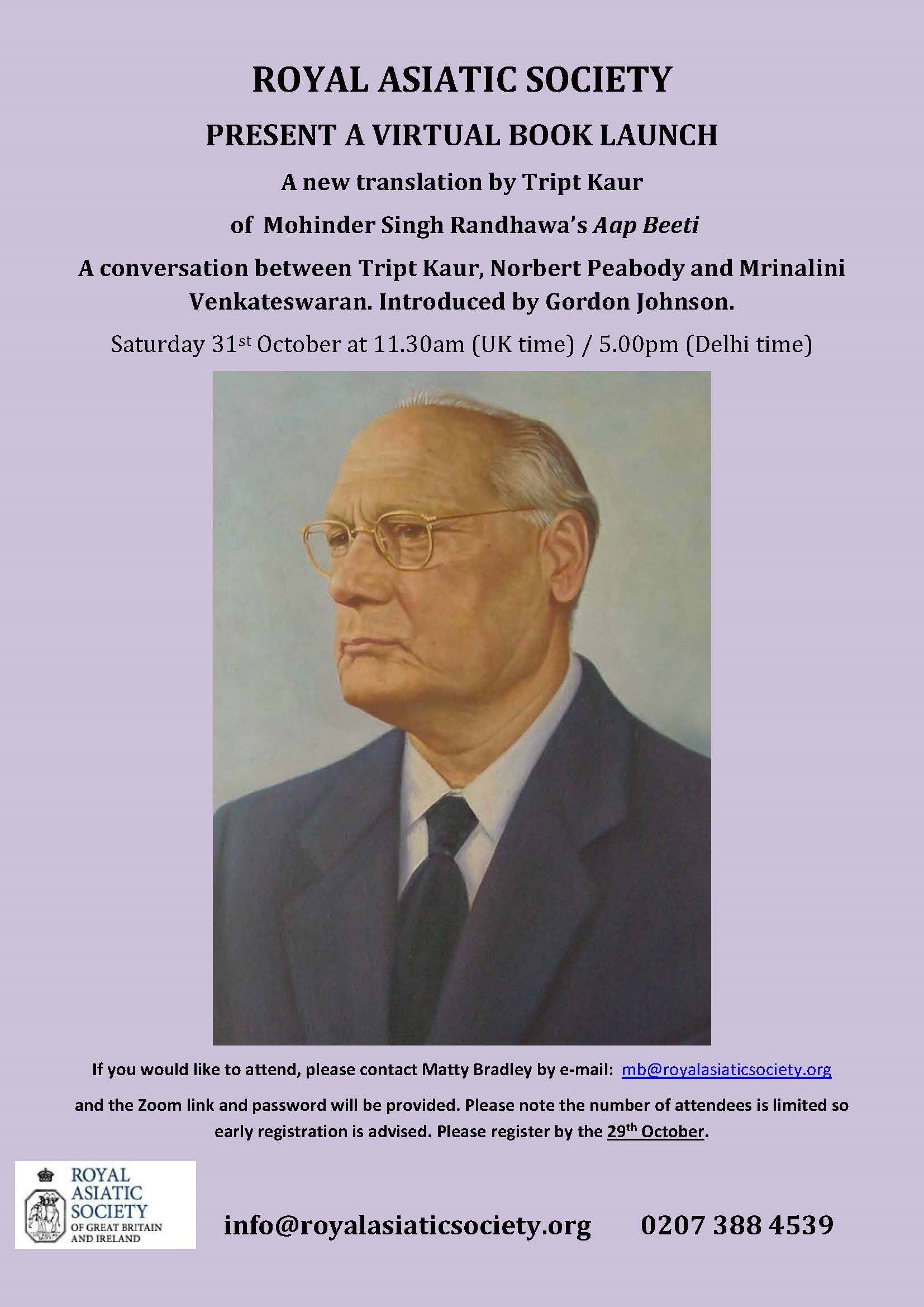The significance of The Oriental Translation Fund and the role of Forster Fitzgerald Arbuthnot
This week’s blog post focusses on the cataloguing of The Oriental Translation Fund papers. Very little has been published around the work of the fund which has been significant in funding published translations of specialised works of Asian manuscripts. Unlike many other funds that existed within the 1800’s, the fund is still in operation today and introduces a variety of works to newer audiences. The cataloguing of these papers will also hold a special place for myself as it is the first collection that I have catalogued as archivist at the society.
Early days of the fund:
A quarter of the collection consists of committee minutes which highlight the activities of the fund in its beginnings in 1828 and the publication of the original series of translations. A notable figure from this period was the linguist and diplomat, Sir Gore Ouseley who was notable for serving as an ambassador to Persia in 1810. Sir Gore had a large interest in advancing the study of Persia and helped establish the fund under his Chairmanship. Most of the minutes within the collection have been signed off by Sir Gore.

In its beginnings, the fund was financed by subscriptions and the list of subscribers to the fund during this period were highly impressive. Subscribers included: Prince Leopold of Saxe-Coburg, the Prime Minister; The Duke of Wellington, the Archbishop of Canterbury and one of the founders of the Royal Asiatic Society, Henry Colebrook.
Unfortunately, the initial enthusiasm for the fund began to decline and in 1860 operations were suspended due to a shortage of funds with the committee disposing of most of its stock. This is covered in the final minute book of the collection from 1848-1865 with stocks being sent to the Wesleyan Methodist Missionary Society. However, a large volume of works was published during this first stage with publication lists in the collection illustrating that 71 translations were published in series one.
Resurgence of the fund and the role of Forster Fitzgerald Arbuthnot:
Members of the council still recognised the value and significance of the fund and there were continuous talks about reviving it in the 1880’s. A pivotal figure in these talks was the British Orientalist and translator, Forster Fitzgerald Arbuthnot who had previously collaborated with Sir Richard Burton on the Kama Sutra. Arbuthnot’s passion for translating texts and publicising them to western audiences led to him taking control of the management of the fund. In addition to this, he funded many of the publications himself which would form series two of the fund.
The collections contain a large volume of written correspondence from Arbuthnot which showcase his commitment towards making accessible valuable translations of Asian manuscripts. Arbuthnot’s dedication to this work led to him donating his own private collections of manuscripts to the Asiatic society upon his death whilst also transferring the existing stock and copyright of the fund to the society. This is covered in the final written correspondence that we have from Arbuthnot in the collection.

Arbuthnot’s legacy:
Significantly, the fund is still in existence today and has led to the publishing of many valued translations in recent years. Whilst various figures have been important in allowing the fund to continue through to the 21st century, Arbuthnot’s legacy has been pivotal in introducing pivotal works around Asia to wider audiences.
This brings us on to the most recent translation which has been published by the help of the fund. Aap Beeti, the autobiography of Mohinder Singh Randhawa has recently been translated into English from the Punjabi by Tript Kaur. The translation was organised by Mrinalini Venkateswaran who is a fellow of the society.
If you are interested in hearing more about this work, please join us for a virtual book launch of the publication on Saturday 31st October where Tript Kaur, Norbert Peabody and Mrinalini Venkateswaran will be discussing this publication.

Also, a downloadable version of the publication can be found on the website at: https://royalasiaticsociety.org/library-collections/aap-beeti/.
Virtual AGM:
Last night (Thursday 22nd October), we held our first ever virtual AGM for the year which was originally scheduled for May. The event went successfully and a full account of this (including photographs) will be given in next week’s blog post.

